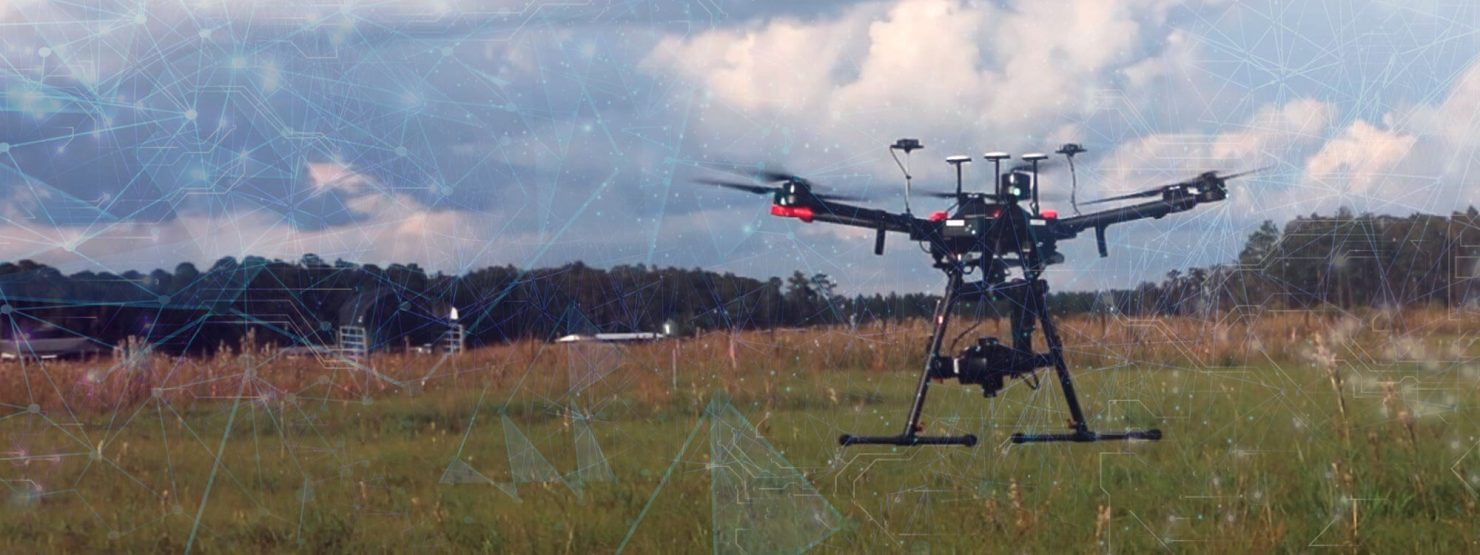ENGINEERING PLAYS A LEADING ROLE IN AGRICULTURE PRACTICES OF THE FUTURE
Through the IoT4Ag Engineering Research Center, faculty from the Herbert Wertheim College of Engineering will play a pivotal role in providing data communications via IoT and application of AI to problems facing the agricultural sector. David Arnold, George Kirkland Engineering Leadership Professor in the Department of Electrical and Computer Engineering (ECE) is a co-principal investigator for the ERC and director of the UF site. Alina Zare, professor of electrical and computer engineering in ECE, heads up the Machine Learning & Sensing Lab at UF. They recently got together to answer twelve questions about the resources engineering brings to precision agriculture and how it will impact the society of the future.
Q: What is the current state of affairs in engineering for agriculture?
A: We find that sensor networks, artificial intelligence and machine learning are being used to make systems smarter, more efficient, and more customized to the user; and there’s a push to move these kinds of ideas into agricultural applications to improve farming.
Q: What is the Engineering Research Center’s vision for agriculture in the future?
A: Our aim is to help farmers minimize the use of energy, water and fertilizers while producing to the maximum amount of crops.
Q: What kinds of challenges are engineers and farmers facing?
A: Population ground, a shrinking amount of arable land and climate change are three major factors affecting farmers. If farmers can produce more crops with less water, fuel, and fertilizer, farming can be made more economically profitable with lower environmental impact.
Q: What aspect of the ERC’s research will you be addressing here at UF?
A: Dr. Arnold: I will be concentrating on providing power sources to run everything from a micro sensor to a fleet of aerial drones. Dr. Zare: I will be developing algorithms that can be applied to the mountains of data the sensors and drones produce to analyze the many questions to which farmers are seeking answers.
Q: How will farmers play a role in the ERC?
A: Representatives of farmers’ and growers’ associations sit on different oversight committees within the center. Farmers who are interested in joining the center can engage through a formal partnership, attend meetings, share their problems and vote on everything down to what projects will be pursued or what specific field or crop should be addressed. They’re an important part of the decision making guidance.
Q: Will engineers be going out to farms as part of this ERC?
A: Yes, and farmers will visit the engineering labs to get a clearer understanding of the working environment of electronics and software research.
Q: What impact will the UF’s AI initiative have on the ERC research?
A: Everything from satellite imagery to drones, to sensors in the field giving point measurements will need to be processed to answer the farmers’ questions and do the monitoring and the management of precision agriculture. The NVIDIA upgrades to the UF HiPerGator supercomputer are excellent for a lot of the deep learning methodologies and AI methods that will be used.
Q: What are some other outcomes of developing this type of precision agriculture?
A: There are complex questions such as how to balance how much yield the farmer can get with how much irrigation/fertilizer run-off goes into the local ground water. Things like that could impact policymakers’ decisions.
Q: What impact will precision agriculture and the ERC have on the agricultural workforce?
A: The fourth industrial revolution, marked by IoT and AI, is coming; and the ERC will help produce the agricultural students and engineering students who will meet at the interface in a new era of techno farming.
Q: What are the first steps in educating the techno-farming workforce?
A: We’re planning everything from certificate programs for university students and agriculture professionals to K-12 outreach, where high school students may come out to the research fields to help us and elementary school children may be going on field trips to the farms. UF will be producing Ph.D. students who have a history of research in applied AI for agriculture as well as other fields.
Q: Will the ERC have partnerships with industry?
A: Private companies will transition our research technology to useful products and applications. There will be many small business opportunities. Industry partners, like the farmers we spoke about earlier, can become ERC members who listen in, lean in and contribute.
Q: Final comments?
A: Agriculture intersects so many parts of our society. If we can make all the information gathered through sensors and IoT available, helpful and meaningful to the farmers and the producers, we are also helping our society and the wider community in an important way.
To learn more details about the role of engineering in the emerging field of precision agriculture, read the full Q&A interview with Dr. Arnold & Dr. Zare.
